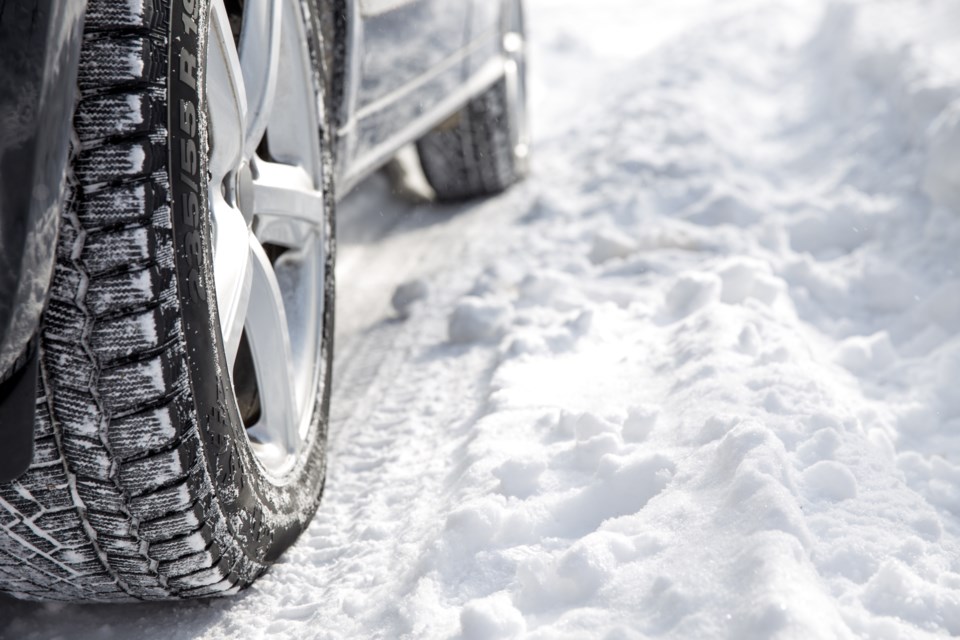With the severe swings in weather patterns brought on by climate change increasing every season, it’s hard to accurately predict what kind of conditions a Canadian winter will bring to us this year.
One thing is for certain: when it comes to snow, ice, and slush on the roads, it’s always better to be riding on a good set of winter tires.
“For starters, the main benefits are the braking, being able to stop in a much shorter distance than on all-season tires,” said Josh Adams, office manager at Dettmer Tire and Auto Centre in downtown Guelph. “Typically, that’s about 30 percent shorter under emergency braking conditions so that’s a quite a bit.”
As temperatures gradually start to dip as autumn gives way to cooler winter weather, Adams says it’s important to get the winter tires on early. Many insurance company discounts are based on riding on winter tires, so it’s a good idea to get them installed before the first snow flies.
“Anytime the road is below seven degrees consistency is a good time to make the switch,” said Adams. “That usually means sometime in the last two weeks of October.”
When it comes to shopping for the appropriate tires to get you and your vehicle safely through winter, Adams says if you’re not using winter tires, even all all-weather tire is better than sticking with your all-season radials. The primary difference is all-seasons are basically summer tires you can use year-round, while an all-weather tire is a winter tire designed for year-round use. Ultimately, the safest route to take is buying a set of highly-rated winter tires according to Adams.
“Winter tires are much cheaper than an accident,” said Adams. “It’s best to put on as much winter tire as you can afford. All winter tires have to meet a benchmark against an all-season tire to perform 10 per cent better at minimum. Most of them far exceed that rating in winter conditions.”
According to Adams, high-end winter tires like the Bridgestone Blizzak or the Finnish-made Nokian Hakkapeliitta perform so well on ice that it’s often hard to tell you’re actually driving on ice. They offer the greatest safety protection given their ability to provider drivers with short-braking capabilities in slippery conditions.
Once you’ve got your tires on, Adams says it’s important to also keep them properly inflated. He suggests checking the air in your tires every time there’s a consistent change in temperatures of 15 degrees. He also suggests that drivers consider a couple other important preventative maintenance measures prior to winter’s arrival.
“Make sure you’ve got the right windshield fluid, one rated to below minus 40,” he said. “A lot of gas stations have the summer ones on display that don’t go to minus 40. Also, October is also a good time to switch up your wiper blades.”
Given the typical seasonal rush to switch over prior to winter, Adams said now’s a good time to book your winter tire change. You can do that by contacting either of the two locations of Dettmer Tire, 325 Eramosa Road or 23 Cork Street East in Guelph. Visit them online at https://dettmertires.com/.
